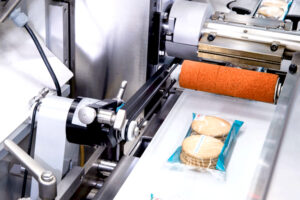Packaging plays a crucial role in the success of any business, ensuring that products are protected, preserved, and presented attractively to customers. Heat sealing machines are indispensable tools in diverse industries for creating secure, airtight, and visually appealing seals on a variety of packaging materials. At Austwrappingco, we take pride in offering an extensive range of heat sealing machines, designed to cater to the specific needs and requirements of your business operations.
In this comprehensive guide, we will delve into the fascinating world of heat sealing technology, highlighting its function, utility, and relevance to your business. We will discuss the various types of heat sealing machines available in the market and uncover their unique features, advantages, and applications. Furthermore, we will provide an in-depth analysis of the factors to consider when choosing the right heat sealing machine for your packaging operations to ensure optimum efficiency, performance, and reliability.
Join us on this educational journey as we explore the versatile and innovative potential of heat sealing machines, demonstrating their importance in modern packaging operations, and empowering you to make informed decisions regarding the equipment best suited for your business’s unique requirements. By understanding the various heat sealing machine types, selection strategies, and best practices, you will inevitably elevate the packaging standards of your business, thereby enhancing customer satisfaction and catapulting your company to new heights of success.
Types of Heat Sealing Machines
Impulse Sealer
Impulse sealers utilise a brief electrical impulse to heat a thin sealing wire that momentarily melts the packaging material, creating an airtight seal. This type of heat sealer is suitable for polyethylene, polypropylene, and various other thermoplastic films – making it popular in industries such as food, pharmaceuticals, and retail. Impulse sealers are renowned for their rapid heating and cooling times, ensuring efficient, high-throughput sealing operations.
Constant Heat Sealer
In contrast to impulse sealing, constant heat sealers maintain a consistent temperature throughout the sealing process. These machines are ideal for thicker, more heat-resistant materials like cellophane, aluminium foil, and coated papers. Constant heat sealers come in various forms, such as handheld, tabletop, or clamping models, offering users flexibility and versatility in their operations.
Polyethylene (PE) Shrink Films
Polyethylene shrink films offer a practical, cost-effective option for packaging heavy or bulky items, such as cases of beverages or large consumer goods. PE films provide excellent puncture resistance, strength, and flexibility, ensuring that products remain secure during transportation and storage. Polyethylene films can withstand harsh environmental conditions, making them suitable for outdoor applications or products stored in uncontrolled temperature environments.
Band Sealer
Band sealers are continuous heat sealing machines designed for high-volume production lines. These machines utilise a conveyor system that swiftly transports packaging materials through heated sealing elements, consistently producing secure, uniform seals. Band sealers are commonly preferred in industries requiring quick, automated sealing solutions for various products, such as food, beverages, chemicals, and pharmaceuticals.
Factors to Consider When Choosing a Heat Sealing Machine
Packaging Material
A vital factor in selecting the appropriate heat sealing machine is the type of packaging material you use. Evaluate the thickness, heat sensitivity, and overall composition of the material to determine whether an impulse, constant heat, or band sealer would be the best fit. Keep in mind that some machines may only be suitable for specific materials, so ensure compatibility before investing in a heat sealer.
Product Volume
Consider the volume of products you need to package and seal in your operations. If your business demands high throughput capacity, a continuous band sealer tends to be a more effective choice. On the other hand, impulse and constant heat sealers may offer adequate speed and efficiency for smaller scale or intermittent sealing needs.
Budget Constraints
Assess your budget when determining which heat sealing machine to acquire. Impulse sealers may be the more affordable option for smaller businesses or those with basic sealing requirements. In contrast, businesses with larger budgets and more extensive sealing needs may find band sealers or specialised constant heat sealers to be a better investment.
Automation Requirements
The level of automation required for your packaging operations is another crucial consideration when selecting a heat sealer. If your process demands consistent automation and minimal manual intervention, a band sealer will likely be the optimal choice. Conversely, if your sealing needs vary or require more hands-on control, impulse and constant heat sealers could provide the needed flexibility.
Best Practices for Achieving Perfect Seals
Temperature Settings
Achieving the ideal temperature for your specific packaging material is critical for a perfect seal. Too low a temperature may result in weak or imperfect bonds, whereas excessive heat can cause burnt or damaged packaging. Consult the manufacturer’s recommendations for your material’s optimal sealing temperature and make adjustments as needed to ensure reliable, secure seals.
Dwell Time
It is essential to maintain the correct dwell time – the period during which the sealing wire or element is in contact with the packaging material. A shorter dwell time may leave seals incomplete, whereas extended dwell time could compromise packaging integrity. Experiment with dwell times and observe the results to find the ideal duration for your sealing operations.
Pressure Control
Consistent and even pressure distribution is necessary for generating smooth and uniform seals. Ensure that your heat sealing machine’s pressure elements are adequately maintained, clean and correctly aligned. Inspect seals for any inconsistencies that may indicate uneven pressure distribution, and make necessary adjustments.
Periodic Maintenance
Regular inspection and maintenance of your heat sealing machine are crucial for prolonging its lifespan, promoting efficient performance, and consistently producing perfect seals. Schedule and document periodic maintenance checks, replacing worn or damaged components promptly to avoid compromising the quality of your seals and overall packaging.
Conclusion
Heat sealing machines are indispensable tools in modern packaging operations, providing businesses with durable, airtight, and visually appealing seals for a vast array of products. By understanding the range of heat sealing machine types, selection criteria, and best practices for achieving perfect seals, you can ensure your business remains competitive and upholds high packaging standards that attract and retain customers.
This comprehensive guide has equipped you with the knowledge necessary to make informed decisions about heat sealing machines, enabling you to optimise efficiency, effectiveness, and consistency in your packaging operations. By investing in the right equipment and applying best practices, you will be well-prepared to achieve consistent, high-quality seals that reflect your company’s commitment to excellence and customer satisfaction. Contact Australian Wrapping Company today!













